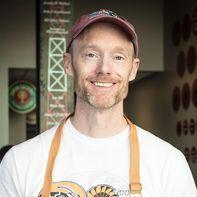-
Welcome to the eG Forums, a service of the eGullet Society for Culinary Arts & Letters. The Society is a 501(c)3 not-for-profit organization dedicated to the advancement of the culinary arts. These advertising-free forums are provided free of charge through donations from Society members. Anyone may read the forums, but to post you must create a free account.
Choosing A Pastry School
-
Similar Content
-
- 120 replies
- 40,018 views
-
- 0 replies
- 560 views
-
- 34 replies
- 2,790 views
-
- 79 replies
- 8,218 views
-
- 12 replies
- 1,422 views
-
-
Recently Browsing 0 members
- No registered users viewing this page.





Recommended Posts